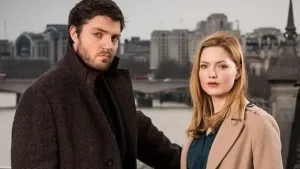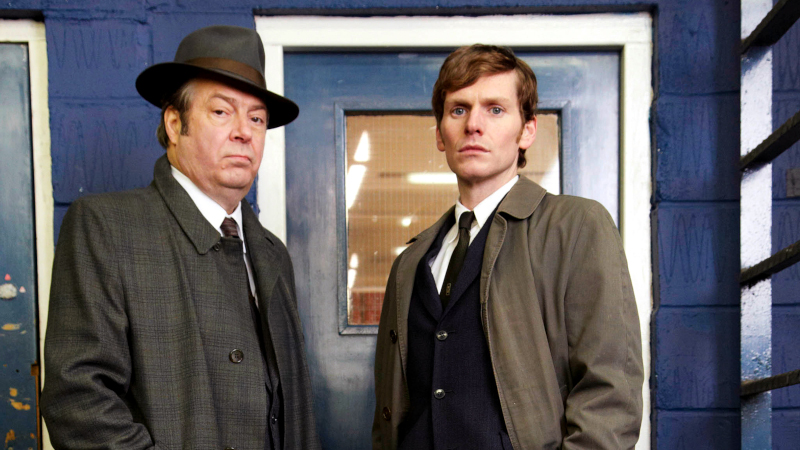I just finished watching Series Five of Strike which features the J. K. Rowling detective Cormoran Strike and now it’s time for a review. Mostly mediocre. I could probably stop there and be done with it but I will elaborate.
The show features Tom Burke as detective Cormoran Strike and Holliday Grainger as his entirely unlikable sidekick Robin Ellacott. Not that she’s written to be unlikable, she just is. The show is based on the novels by Rowling and a sixth was published in 2022 so one imagines we’ll have another series along shortly.
All the Mumbling
I’m not going to blame Burke for his mumbling portrayal of Cormoran Strike because I’m guessing that’s the way the director told him to play it. Apparently, someone besides me complained because in the fifth series he is actually understandable a good 75 percent of the time, a marked improvement.
It really takes away from my ability to enjoy the series when I can’t understand the lead character most of the time. I’m sure the English accent probably has something to do with it but it was mainly his unwillingness to open his mouth when speaking that caused the issues.
Convoluted Mysteries
I’ve spoken before that too often a writer makes the mystery entirely impossible to solve through a series of baffling events. This is done so that the audience doesn’t figure out the solution too easily. I think it’s a mistake to make things too convoluted. You lose the audience.
The second, third, and fourth series in particular became so confusing with so many different things going on that I largely lost the thread and my interest. The fifth series was much better and presented a far more straight-forward mystery.
Speaking of the fifth series, I thought it was largely the best of the entire show except for one glaring misstep. The serial killer Cormoran interviews during the case might as well have been named Hannibal Lector with a Fan Fiction label placed on the scenes. Not that I’ve got anything against fan fiction.
The blatant derivative nature of the character really turned me off to what was otherwise the best series of the show.
Too Much Personal Life and not Enough Mystery
Another thing I’ve complained about before in mysteries is the loss of focus on the crime and solution and too much attention to the detectives and their personal lives. Strike suffers from this throughout all five seasons.
There’s nothing wrong with getting to know the detective team outside their professional lives but the scenes so doing should further the story. In the case of Strike, the details about Cormoran and Robin didn’t do anything for the mystery. Robin’s failed marriage in particular just annoyed me, but more about annoying Robin next.
Robin is not a Likeable Character
You don’t have to be a good person to be a likeable character. See Tony Soprano. Robin is just unpleasant. She’s a snotty, holier-than-thou, know-it-all, insufferable master of disguise. Cormoran has moments of being unpleasant but overall, he’s likeable and it’s his portrayal that makes the show watchable. Robin, not so much.
I did not find her panic attacks endearing, just annoying. Annoying. I don’t mind hating a character. That’s usually the sign of an interesting character. But an annoying character is just unpleasant to watch and there is a lot of Robin.
The Other Stuff
The acting is largely good to excellent. The sets are very nice. The music is subtle and doesn’t dominate scenes as too often happens. I believed the characters and the locations.
Conclusion
Not good. Not bad. Mediocre detective work. My main issues are the confusing story, the annoying Robin, and the mumbling Cormoran.
Tom Liberman


